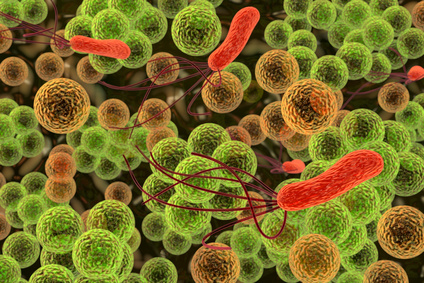Gut microbiota may have role in Alzheimer’s, Parkinson’s diseases, finds study

- admin
- October 11, 2016
- Gut Bacteria, Integrative, microbiome, Recent News
- No responses
Could neurodegenerative diseases such as Alzheimer’s and Parkinson’s originate in the gut? New research from the US, published in the journal Nature, shows that certain proteins produced by gut bacteria may be linked to neurodegeneration in rats.
A team of researchers at Louisville School of Medicine found that neuron destruction processes in the brain could be triggered by proteins produced by gut microbiota.
The discovery, observed in rats, shows once again how one small protein has the potential to influence brain function. This time, researchers found that exposing rodents to bacterial proteins called amyloids could increase clumping of a protein produced by the brain (alpha-synuclein), forming harmful aggregates that damage neurons in patients with Alzheimer’s, Parkinson’s and Amyotrophic Lateral Sclerosis (ALS).
The scientists also suggest that amyloid proteins produced by microbiota may cause priming of immune cells in the gut, increasing inflammation in the brain. The research involved administering strains of . coli bacteria that produce the bacterial amyloid protein to a group of rats. A second group of rats was administered E coli bacteria that did not produce the protein.
Compared to rats in the second group, rats who received the amyloid-producing strain were found to have increased levels of the alpha-synuclein protein in the intestines and the brain, as well as increased aggregates in the brain and brain inflammation.
The potential role of microbiota in neurodegeneration opens up new research avenues for scientists exploring the factors responsible for neurological disease, the researchers concluded. “This is important because most cases of these diseases are not caused by genes, and the gut is our most important environmental exposure,” said the study’s author, Dr Robert P Friedland. “In addition, we have many potential therapeutic options to influence the bacterial populations in the nose, mouth and gut.”
